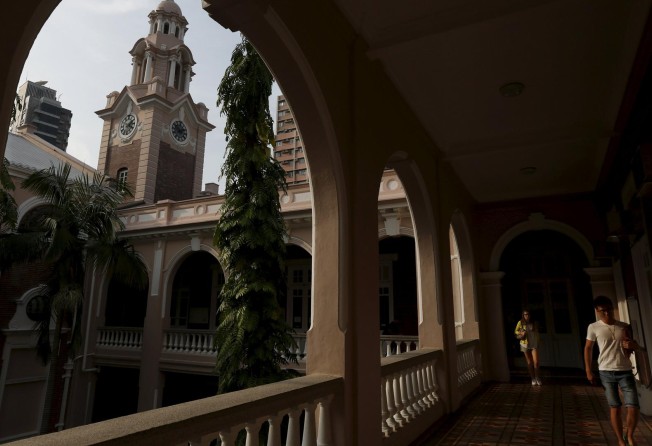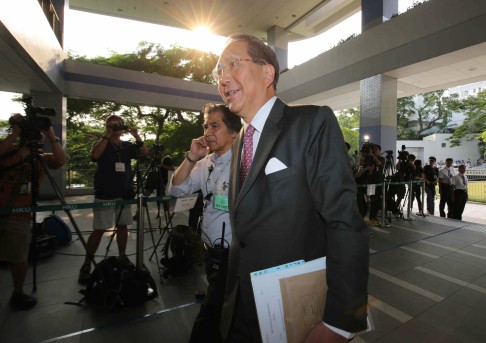Why is there no public outrage over the HKU audio leak?
Lawrence J. Lau is appalled by the lack of public uproar over the unauthorised recording and leaking of a private meeting of University of Hong Kong council members

I was shocked to learn that the supposedly confidential proceedings of a meeting of the University of Hong Kong council were secretly recorded, presumably by one of its members, and leaked to a local radio station, which broadcast what two of its members, Professor Arthur Li Kwok-cheung and Leonie Ki Man-fung, said at the meeting word for word. It is not known whether what other members said will make the air eventually. The secret recording, without obtaining the prior consent of those being recorded, and its subsequent release, also done in secret, was an utterly despicable, irresponsible, selfish and cowardly act.
In the US, recording conversations in secret is a criminal act in some states. Such laws are intended to protect the rights and privacy of individual citizens. Anyone who purports to support human rights and the rule of law must support such protection.
However, what is even more shocking is that hardly anyone in Hong Kong academia and no one in media circles seems to think there is anything wrong here. While it may not be illegal in Hong Kong to record conversations in secret, or to broadcast such recordings, it is certainly unethical. A distinguished institution of high learning such as HKU, which is supposed to educate our youth, should have a higher standard than simply "no law was broken".
HKU's guidelines and code of practice for council members clearly states that, "While students and staff and the public should have access to information about the proceedings and decisions of the council … it is necessary to keep confidential the council agenda, supporting papers and minutes, especially when they are concerned with individuals or plans yet to be finalised or have a commercial sensitivity. Indeed, discussions at the council meetings and council papers are confidential and all members of the council should uphold this principle of confidentiality, to allow free discussions and exchange of views at council meetings."

But on a more fundamental level, secret recordings destroy mutual trust. It will certainly have a chilling effect on free and open communication and exchange at the university if members begin to suspect that whatever they say may be secretly recorded and broadcast at some point. And if there is no mutual trust even at the university, would there be mutual trust elsewhere? Without mutual trust, which takes years to build and just seconds to destroy, our society cannot function properly. Moreover, our condoning of such egregious behaviour, or our turning of a blind eye, contributes to further erosion of our core values of justice, fair play, and mutual respect despite disagreement. The perpetrators of these despicable acts cannot be compared to Daniel Ellsberg and Edward Snowden, who did break the law, but did so openly and accepted the full legal consequences of their actions.
The current episode reminds me of a similar incident in Hong Kong in 2006, also involving Li. At that time, the head of a tertiary educational institution secretly recorded a phone conversation that he had with Li, who was then secretary for education, and then attempted to use it against Li, apparently intending to entrap him. Shocking as such behaviour might seem, especially for the head of an institution of higher learning, what was even more shocking was that no one at the time thought there was anything wrong with what he did. Certainly no one from academia or from the media spoke up against it. And there was neither shame nor remorse.
Some of us who preach the "rule of law" every day do not feel restrained to violate either the letter or the spirit of the law, or ethical standards, whenever it suits their purpose. To them, the "rule of law" is just a slogan to be used and not a principle to be followed. They pay only lip service to fair play, justice and mutual respect. It is really sad that our standards have sunk so low in Hong Kong in recent years, that any means, no matter how dishonest, unethical (or even illegal) can be justifiably used to pursue an end.
It is time to ask: have we no sense of decency left in Hong Kong?
Lawrence J. Lau is the Ralph and Claire Landau Professor of Economics at the Chinese University of Hong Kong, and Kwoh-Ting Li Professor in Economic Development, Emeritus at Stanford University. All opinions expressed herein are the author's own